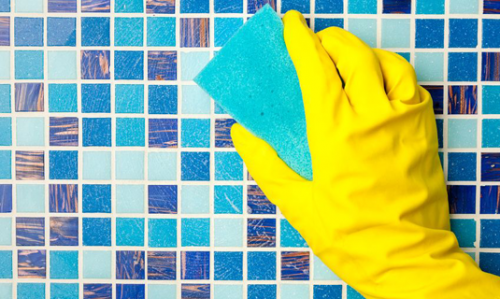The significance of cleanliness and personal hygiene in the pathogenesis of allergies

A new study carried out by LMU researchers has found no evidence for the notion that an overemphasis on personal and household hygiene stimulates the development of childhood allergies and asthma. The finding is based on data obtained from 400 families, which was compiled and analyzed by the research group led by Professor Erika von Mutius, Head of the Outpatient Department of Asthma Allergies at Dr. von Hauner Children's Hospital, Munich. The results appear in the American Journal of Respiratory and Critical Care Medicine.
The study was undertaken as part of the PAULA project, which is financially supported by the Bavarian Ministry of Health. PAULA itself is designed to analyze interactions between health and environmental factors by monitoring a representative sample of children living in Munich and its immediate environs during their first 10 years of life. Using a specially designed questionnaire, the researchers assessed the children's personal hygiene and the cleanliness of their family homes. Among other things, their parents were asked how often the children washed their hands, whether they changed their shoes on returning home, and how often the floors were cleaned and the bedclothes were changed. In addition, the investigators characterized specific bacterial markers found in samples of house dust taken from carpets and mattresses. "We found no association between the incidence of asthma, hay fever or atopic eczema and the children's attitudes to hygiene or the level of cleanliness prevailing in their homes," says Erika von Mutius.
Clean does not mean sterile
Some of the biological measurements were indeed significantly correlated with the habits of hygiene and levels of domestic cleanliness, as were overall amounts of household dust. The researchers also detected a correlation between the presence of certain bacterial markers and reduced risk for asthma, hay fever or atopic eczema among the children enrolled in the study. "However, differences in levels of hygiene have no impact on these bacteria or bacterial components. They are not eliminated by normal cleaning procedures," says Privatdozent Dr. Markus Ege, a member of Erika von Mutius' group. "One cannot turn a household into a cleanroom anyway. Within less than half-an-hour after the floor has been mopped or scrubbed, the bacteria are back."
The findings argue that the overall quantity of dirt in the house does not determine the degree of protection against childhood allergies. "It is not the amount of dust and grime, but rather its composition that is important – the spectrum of bacterial species to which the children are exposed," says Ege. In other words, the rise in the incidence of allergic conditions in Western societies cannot be attributed to more assiduous personal hygiene or greater emphasis on household cleanliness. "It is more a matter of restricted exposure to environmental micro-organisms, which reduces the range of bacterial species with which we come into contact," Ege explains.
Earlier studies led by Erika von Mutius had highlighted the so-called farm effect – the now well supported finding that children brought up on dairy farms are significantly less likely to develop asthma or allergies than their classmates. The effect is thought to reflect the fact that these children are exposed to specific micro-organisms that act on the immune system to reduce the risk of the hypersensitivity that promotes allergic reactions.
The researchers now plan to study the impact of specific bacteria on the child's immune system in order to identify the mechanisms responsible for their allergy-inhibiting effects.
More information: "Asthma and the Hygiene Hypothesis. Does Cleanliness Matter?" American Journal of Respiratory and Critical Care Medicine, Vol. 191, No. 5 (2015), pp. 522-529. DOI: 10.1164/rccm.201410-1899OC


















